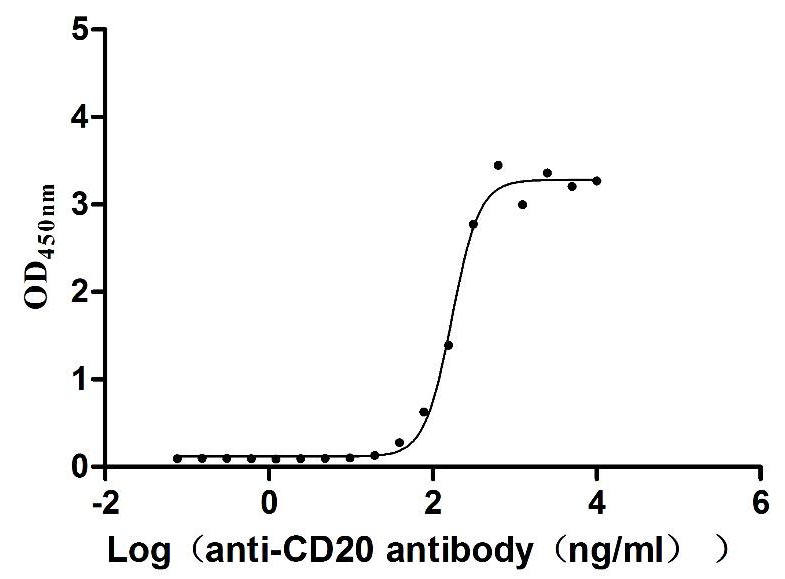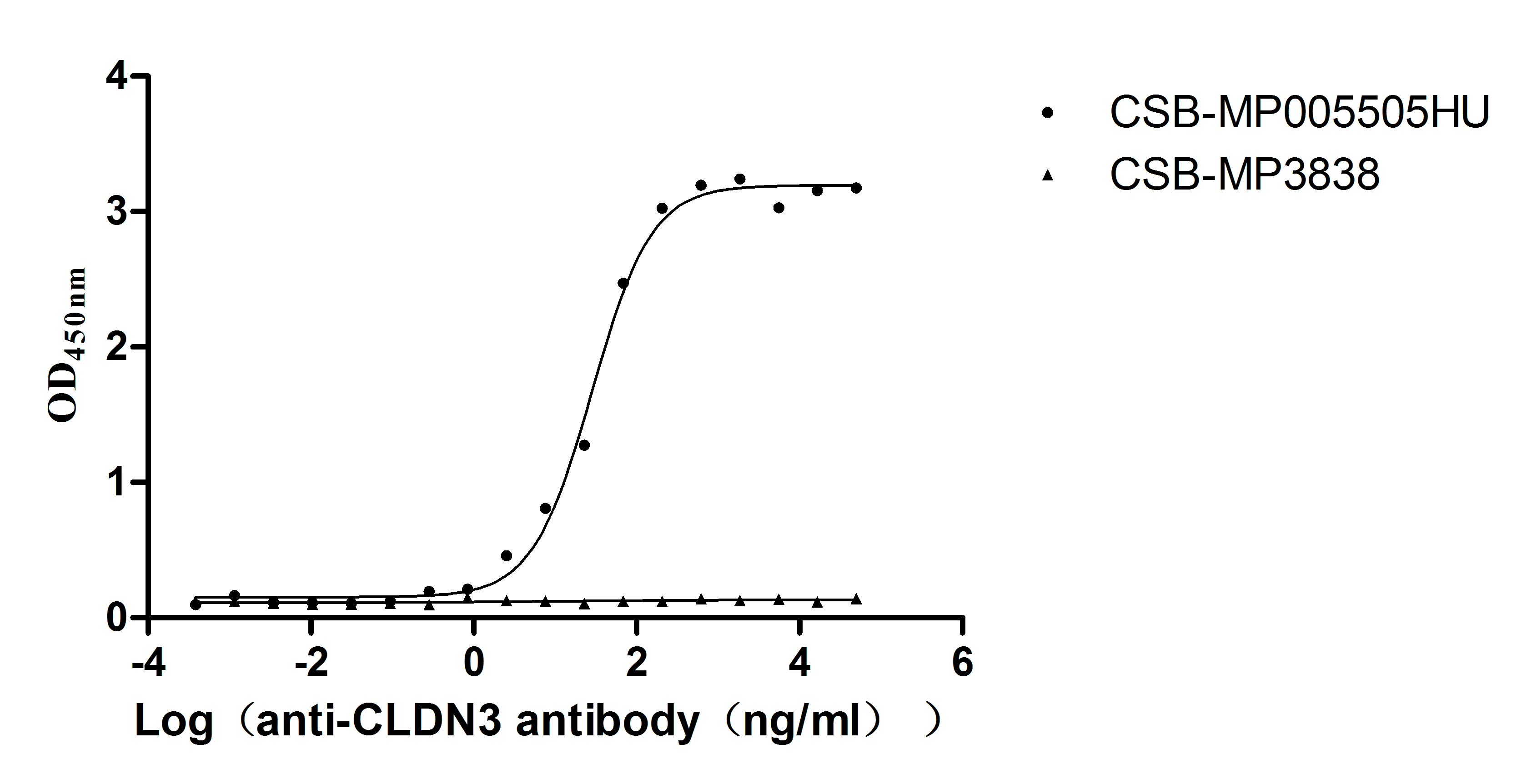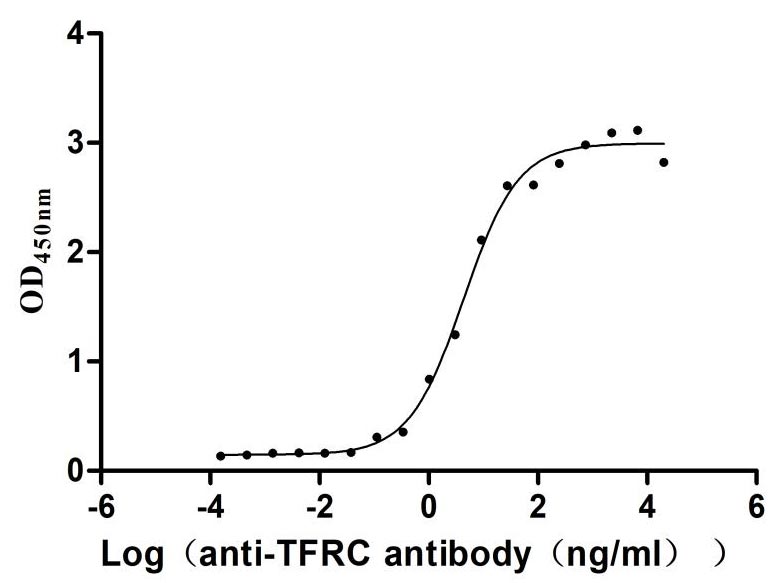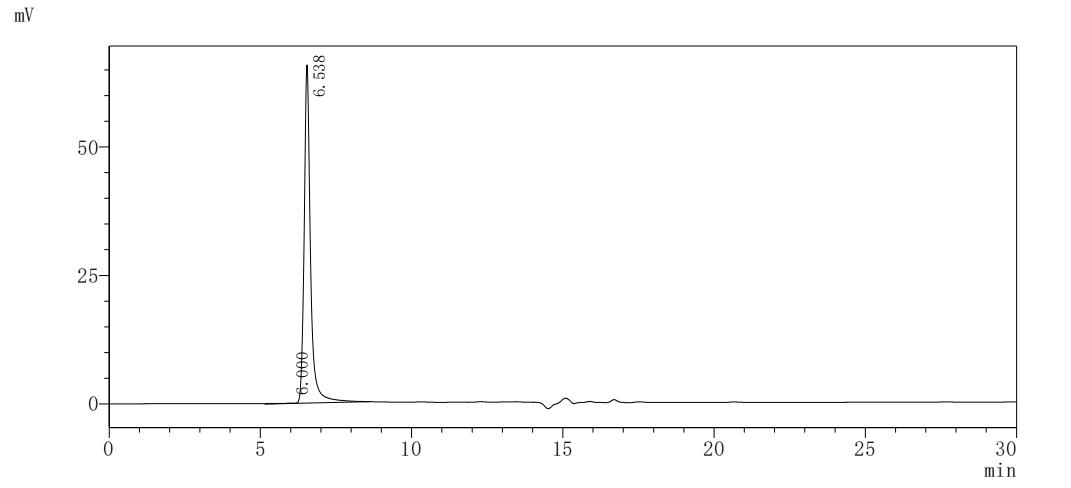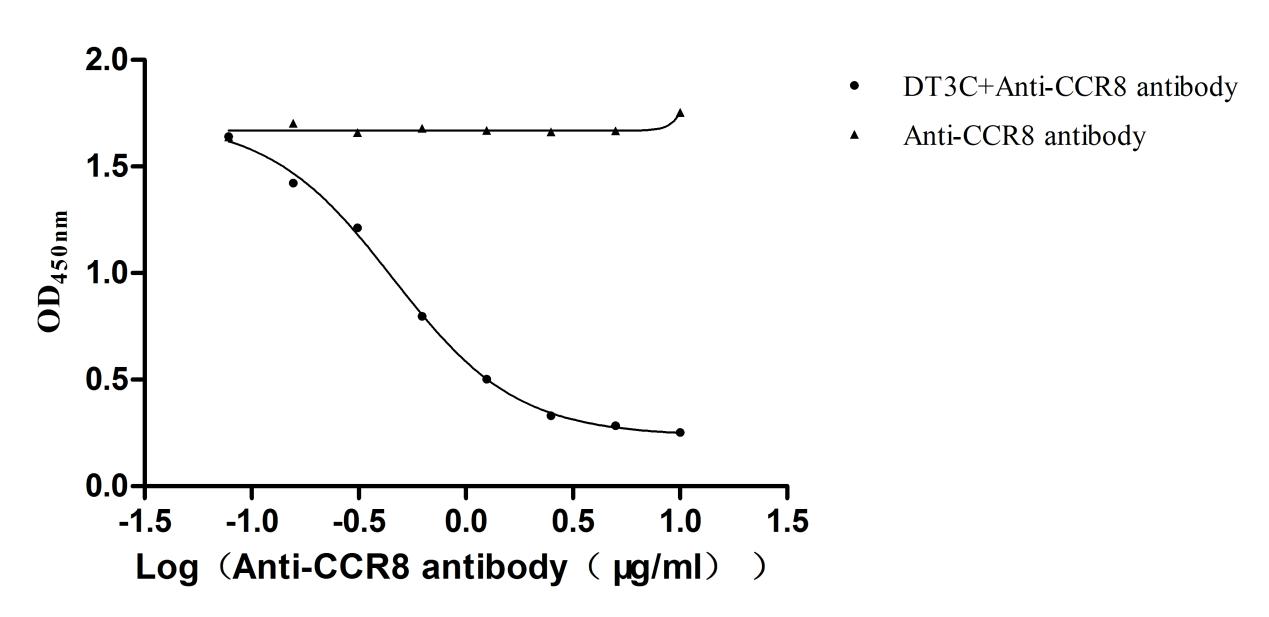Recombinant Mouse Serine/threonine-protein kinase receptor R3 (Acvrl1), partial
-
中文名称:Recombinant Mouse Serine/threonine-protein kinase receptor R3(Acvrl1),partial,Yeast
-
货号:CSB-YP723406MO
-
规格:
-
来源:Yeast
-
其他:
-
中文名称:Recombinant Mouse Serine/threonine-protein kinase receptor R3(Acvrl1),partial,Yeast
-
货号:CSB-EP723406MO
-
规格:
-
来源:E.coli
-
其他:
-
中文名称:Recombinant Mouse Serine/threonine-protein kinase receptor R3(Acvrl1),partial,Yeast
-
货号:CSB-EP723406MO-B
-
规格:
-
来源:E.coli
-
共轭:Avi-tag Biotinylated
E. coli biotin ligase (BirA) is highly specific in covalently attaching biotin to the 15 amino acid AviTag peptide. This recombinant protein was biotinylated in vivo by AviTag-BirA technology, which method is BriA catalyzes amide linkage between the biotin and the specific lysine of the AviTag.
-
其他:
-
中文名称:Recombinant Mouse Serine/threonine-protein kinase receptor R3(Acvrl1),partial,Yeast
-
货号:CSB-BP723406MO
-
规格:
-
来源:Baculovirus
-
其他:
-
中文名称:Recombinant Mouse Serine/threonine-protein kinase receptor R3(Acvrl1),partial,Yeast
-
货号:CSB-MP723406MO
-
规格:
-
来源:Mammalian cell
-
其他:
产品详情
-
纯度:>85% (SDS-PAGE)
-
基因名:
-
Uniprot No.:
-
别名:Acvrl1; Acvrlk1; Alk-1Serine/threonine-protein kinase receptor R3; SKR3; EC 2.7.11.30; Activin receptor-like kinase 1; ALK-1; TGF-B superfamily receptor type I; TSR-I
-
种属:Mus musculus (Mouse)
-
蛋白长度:Partial
-
蛋白标签:Tag type will be determined during the manufacturing process.
The tag type will be determined during production process. If you have specified tag type, please tell us and we will develop the specified tag preferentially. -
产品提供形式:Lyophilized powder
Note: We will preferentially ship the format that we have in stock, however, if you have any special requirement for the format, please remark your requirement when placing the order, we will prepare according to your demand. -
复溶:We recommend that this vial be briefly centrifuged prior to opening to bring the contents to the bottom. Please reconstitute protein in deionized sterile water to a concentration of 0.1-1.0 mg/mL.We recommend to add 5-50% of glycerol (final concentration) and aliquot for long-term storage at -20℃/-80℃. Our default final concentration of glycerol is 50%. Customers could use it as reference.
-
储存条件:Store at -20°C/-80°C upon receipt, aliquoting is necessary for mutiple use. Avoid repeated freeze-thaw cycles.
-
保质期:The shelf life is related to many factors, storage state, buffer ingredients, storage temperature and the stability of the protein itself.
Generally, the shelf life of liquid form is 6 months at -20°C/-80°C. The shelf life of lyophilized form is 12 months at -20°C/-80°C. -
货期:Delivery time may differ from different purchasing way or location, please kindly consult your local distributors for specific delivery time.Note: All of our proteins are default shipped with normal blue ice packs, if you request to ship with dry ice, please communicate with us in advance and extra fees will be charged.
-
注意事项:Repeated freezing and thawing is not recommended. Store working aliquots at 4°C for up to one week.
-
Datasheet :Please contact us to get it.
靶点详情
-
功能:Type I receptor for TGF-beta family ligands BMP9/GDF2 and BMP10 and important regulator of normal blood vessel development. On ligand binding, forms a receptor complex consisting of two type II and two type I transmembrane serine/threonine kinases. Type II receptors phosphorylate and activate type I receptors which autophosphorylate, then bind and activate SMAD transcriptional regulators. May bind activin as well.
-
基因功能参考文献:
- our data show that in a tumor environment BMP9 and BMP10 play different roles and thus blocking their shared receptor ALK1 is maybe not appropriate. Indeed, BMP9, but not BMP10, acts as a quiescence factor on tumor growth, lung metastasis and vessel normalization. PMID: 30165893
- These studies identified pathways mediating LDLR-independent uptake of LDL may provide unique opportunities to block the initiation of LDL accumulation in the vessel wall or augment hepatic LDLR-dependent clearance of LDL. PMID: 27869117
- We have identified a novel role for ALK1 in cardiac remodeling PMID: 28820968
- Data show that concomitant activin receptor-like kinase 1 (Acvrl1) and endoglin (Eng) deficiency synergistically decreases pancreatic neuroendocrine tumor volume. PMID: 27741515
- Global deletion of AlK-1 is associated with the development of high output heart failure without maladaptive remodeling. PMID: 28213819
- These data indicate that both Itgb8 and Alk1 are important in maintaining normal cerebral angiogenesis in response to VEGF. Itgb8 deficiency enhances the formation of dysplastic vessels and hemorrhage in Alk1 (+/-) mice. PMID: 27352867
- these studies characterize an accessory TGF-beta-stimulated BMP R-Smad signaling mechanism in interstitial cells of the developing lung. PMID: 28642261
- this study demonstrates that ACVRL1 signaling plays a pivotal role whereby it suppresses plasmacytoid dendritic cell development while enhancing that of CD8alpha(+) dendritic cells, thus contributing to DC diversity development. PMID: 27421479
- CD109 differentially regulates TGF-beta-induced ALK1-Smad1/5 versus ALK5-Smad2/3 pathways, leading to decreased extracellular matrix production in the skin; epidermal CD109 expression regulates dermal function through a paracrine mechanism PMID: 27866969
- he results of the present study demonstrated that BMP9 promoted the osteoclast differentiation of osteoclast precursors via binding to the ALK1 receptor on the cell surface, and inhibiting the ERK1/2 signaling pathways in the cell PMID: 27748860
- Conclude that the ALK-1 receptor is involved in the control of arterial pressure. High AP of Alk1(+/-) mice is explained mainly by the sympathetic overactivation, which is probably related to the decreased number of cholinergic neurons. PMID: 26398936
- Report interaction between ALK1 signaling and connexin40 in the development of arteriovenous malformations. PMID: 26821948
- In vascular sprouting, neuropilin-1 suppresses the stalk-cell phenotype by limiting Smad2/3 activation through Alk1 and Alk5. Notch downregulates Nrp1, thus relieving the inhibition of Alk1 and Alk5, thereby driving stalk-cell behaviour. PMID: 26081042
- BMP9/ALK1 augmented vasculogenesis and angiogenesis, and thereby enhanced neovascularization. Thus, we suggest that BMP9/ALK1 may improve the efficacy of EPC-based therapies for treating ischemic diseases. PMID: 26229139
- BMP-9 induces vascular smooth muscle cell osteogenic differentiation and calcification via ALK1, Smad and ALP dependent mechanisms. PMID: 25297851
- during development, endothelial Acvrl1 plays an essential role to regulate endothelial cell proliferation and arterial identity during angiogenesis, whilst in adult life endothelial Acvrl1 is required to maintain vascular integrity. PMID: 24896812
- Results show that ALK5 and ALK1 play antagonistic roles in TGF-beta-induced podosome formation in aortic endothelial cells. PMID: 25266657
- ALK1 modulates obstruction-induced renal fibrosis by increased extracellular matrix synthesis in myofibroblasts, but without differences in myofibroblast number. PMID: 23945497
- the mechanisms responsible for the angiogenic imbalance and the response to anti-VEGF therapy differ between Eng and Alk1 heterozygous mice and raise the need for systemic monitoring of anti-angiogenic therapy effects in HHT patients. PMID: 24061911
- Deletion of Alk1 in endothelial cells in adult mice leads to an increased local endothelial cell proliferation during brain angiogenesis PMID: 24457293
- FGF2 inhibited BMP9-induced osteogenic differentiation by blocking BMP9-induced Smads signaling and subsequently reducing Smads dependent up-regulation of ALK1 and ALK2 in mesenchymal stem cells. PMID: 23680673
- ALK-1 signals inhibit lymphatic vessel (LV) formation, and LVs were enlarged in multiple organs in Alk1-depleted mice. PMID: 24133138
- Endoglin contributes to both shear induced collateral artery growth and to ischaemia induced angiogenesis, whereas ALK1 is only involved in ischaemia induced angiogenesis. PMID: 22436015
- Reduction of mural cell coverage in response to vascular endothelial growth factor stimulation is a potential mechanism for the impairment of vessel wall integrity in Alk1-deficient mouse brain. PMID: 23241407
- ALK1 is upregulated in endothelial cells during vascular injury by a synergistic cooperative mechanism between KLF6 and specificity protein 1. PMID: 23048070
- Deletion of Eng induces more severe cerebrovascular dysplasia per copy than that of Alk1 upon VEGF stimulation. PMID: 22571958
- PTPN14 has a role in angiogenesis and/or arteriovenous fate, acting via EphrinB2 and ACVRL1/activin receptor-like kinase 1 PMID: 22233626
- The results uncovered a direct link between ALK1 and Notch signaling during vascular morphogenesis that may be relevant to the pathogenesis of hereditary hemorrhagic telangiectasia vascular lesions. PMID: 22421041
- Increased pulmonary vascular remodelling in Alk1(+/-) mice leads to signs of pulmonary hypertension and is associated with eNOS-dependent ROS production, which is preventable by anti-oxidant treatment. PMID: 21859819
- Kidneys of ALK(+/+) and ALK1(+/-) mice were irradiated with 14 Gy. ALK1(+/-) mice develop a delayed normal tissue response by modulating the inflammatory response and growth factor expression after irradiation. PMID: 21704403
- ALK1-Fc inhibits multiple mediators of angiogenesis and suppresses tumor growth PMID: 20124460
- Results strongly suggest that ALK1 and ALK2 may play an important role in mediating BMP9-induced osteogenic differentiation. PMID: 20628059
- a novel aspect of ALK1 signaling in regulating lymphatic development and suggests that targeting ALK1 pathway might provide additional control of lymphangiogenesis in human diseases. PMID: 19903896
- Genetic and pharmacological targeting of activin receptor-like kinase 1 impairs tumor growth and angiogenesis. PMID: 20065063
- endoglin and Alk1 are necessary for the maintenance of distinct arterial-venous vascular beds PMID: 12941632
- Using a series of transgenic constructs with various Alk1 genomic fragments joined to a reporter, it seems a 9.2-kb genomic fragment including the 2.7-kb promoter region & the whole intron 2 is sufficient for arterial endothelium-specific expression. PMID: 15059937
- ALK-1, an orphan receptor in the TGF-beta family, is a potential receptor for BMP-9 PMID: 15851468
- Endoglin has a role in response to transforming growth factor beta1 and activation of Alk1 pathway PMID: 15923183
- ALK1 overexpression results in inhibition of bFGF-induced corneal neovascularization in vivo. PMID: 16223497
- In differentiated endothelial stem cells ALK1 is implicated in mediating transforming beta 1 inhibition of sprouting angiogenesis. PMID: 17071858
- Results from this study provide valuable information regarding the role of ALK1 in the development of placental vasculature as well as insights into the pathogenesis of HHT. PMID: 17530030
- neither ALK5 nor TGFBR2 is required for ALK1 signaling pertinent to the pathogenesis of HHT and suggest that HHT might not be a TGF-beta subfamily disease. PMID: 17911384
- Increased tissue perfusion promotes capillary dysplasia in the ALK1-deficient mouse brain following VEGF stimulation. PMID: 18835925
- Eng was more widely expressed than Acvrl1 in lungs. Association of ACVRL1 mutations with pulmonary artery hypertension underlines importance of ACVRL1 expression in distal arteries affected in this disorder. PMID: 19015642
- age-related shift in ALK1/ALK5 ratio in murine cartilage and a strong correlation between ALK1 and MMP-13 expression in human cartilage PMID: 19494318
显示更多
收起更多
-
亚细胞定位:Cell membrane; Single-pass type I membrane protein.
-
蛋白家族:Protein kinase superfamily, TKL Ser/Thr protein kinase family, TGFB receptor subfamily
-
数据库链接:
KEGG: mmu:11482
STRING: 10090.ENSMUSP00000000542
UniGene: Mm.279542
Most popular with customers
-
Recombinant Human Insulin growth factor-like family member 1 (IGFL1) (Active)
Express system: Mammalian cell
Species: Homo sapiens (Human)
-
Recombinant Mouse Claudin-18 (Cldn18)-VLPs (Active)
Express system: Mammalian cell
Species: Mus musculus (Mouse)
-
Recombinant Dog B-lymphocyte antigen CD20 (MS4A1)-VLPs (Active)
Express system: Mammalian cell
Species: Canis lupus familiaris (Dog) (Canis familiaris)
-
Recombinant Human Claudin-3 (CLDN3)-VLPs (Active)
Express system: Mammalian cell
Species: Homo sapiens (Human)
-
Recombinant Human Transferrin receptor protein 1 (TFRC), partial (Active)
Express system: Mammalian cell
Species: Homo sapiens (Human)
-
Recombinant Human C-C chemokine receptor type 9 (CCR9)-VLPs (Active)
Express system: Mammalian cell
Species: Homo sapiens (Human)
-
Recombinant DT3C (Diphtheria toxin & spg 3C domain) for Antibody Internalization Assay (Active)
Express system: E.coli
Species: N/A


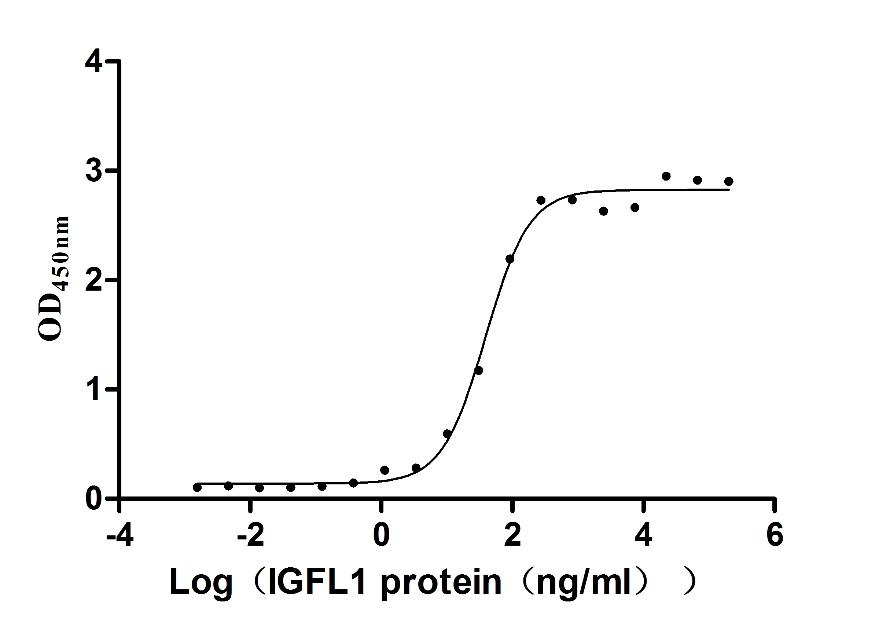
-AC1.jpg)
